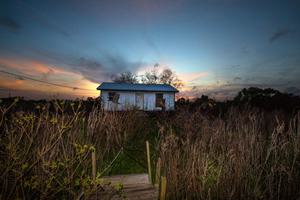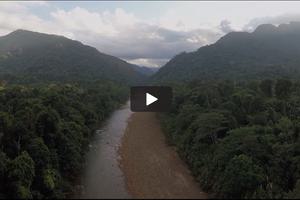In Policy
Environmental Justice
-
E360 Video Contest Winners
On Our Lands: Indigenous Bolivians Take Control Of Their Forests
-
A Death in Pondoland
How a Proposed Strip Mine Brought Conflict to South Africa’s Wild Coast
-
Murder in Malaysia
How Protecting Native Forests Cost a Southeast Asian Activist His Life
-
Video Contest Winner - Runner Up
An Amazon Tribe’s Deadly Fight To Save Its Land From Logging
-
Hard-Pressed Rust Belt Cities Go Green to Aid Urban Revival
Gary, Indiana is joining Detroit and other fading U.S. industrial centers in an effort to turn abandoned neighborhoods and factory sites into gardens, parks, and forests. In addition to the environmental benefits, these greening initiatives may help catalyze an economic recovery.
-
Bringing Energy Upgrades To the Nation’s Inner Cities
Donnel Baird has launched a startup that aims to revolutionize how small businesses and nonprofits secure funding for energy efficiency and clean energy projects in low-income neighborhoods. In a Yale Environment 360 interview, he talks about how he plans to bring his vision to dozens of U.S. cities.
-
With New Tools, A Focus On Urban Methane Leaks
Until recently, little was known about the extent of methane leaking from urban gas distribution pipes and its impact on global warming. But recent advances in detecting this potent greenhouse gas are pushing U.S. states to begin addressing this long-neglected problem.
-
Rethinking Urban Landscapes To Adapt to Rising Sea Levels
Landscape architect Kristina Hill focuses on helping cities adapt to climate change, particularly sea level rise. In an interview with Yale Environment 360, she discusses the challenges, solutions, and costs of saving cities from encroaching oceans.
-
The Haunting Legacy of South Africa’s Gold Mines
Thousands of abandoned gold mines are scattered across South Africa, polluting the water with toxics and filling the air with noxious dust. For the millions of people who live around these derelict sites, the health impacts can be severe.
-
For U.S. Tribes, a Movement to Revive Native Foods and Lands
On ancestral lands, the Fond du Lac band in Minnesota is planting wild rice and restoring wetlands damaged by dams, industry, and logging. Their efforts are part of a growing trend by Native Americans to bring back traditional food sources and heal scarred landscapes.
-
A New Face at the Helm of The Oldest U.S. Green Group
The Sierra Club has chosen Aaron Mair as its president, the first African-American to lead the largest U.S. environmental organization. In an interview with Yale Environment 360, he talks about the lack of diversity in the environmental movement and what can be done to change that.
-
For Buddhist Leader, Religion And the Environment Are One
As a Tibetan Buddhist leader, the Karmapa is promoting green practices in monasteries in the Himalayan region. In an interview with Yale Environment 360, he talks about how the world needs both religion and science in tackling the “environmental emergency” of climate change.










